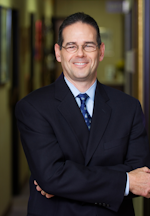For generations, blood has been the medium of choice for diagnosing most diseases and conditions. The reason for this is mainly the limitations of technology. Biomarkers of disease are present in the bloodstream largely in milligram quantities. Many of the same biomarkers are also available in saliva, but in much smaller quantities. Biomarkers in the blood are commonly measured in micrograms, which are one millionths of a gram. Biomarkers in saliva are commonly measured in picograms, one trillionth of a gram, or nanogram quantities, one billionth of a gram. Technology is now at a point where those minute quantities are readily detectable using a number of methodologies, including next-generation sequencing, proteomics, mass spectrometry, genome-wide association studies (GWAS), and other screening techniques. The advantages of salivary testing are obvious. Biomarkers in saliva have been identified for a wide variety of diseases and conditions including: HPV, oral cancer, dental caries, Sjogren’s syndrome, sleep apnea, Alzheimer’s disease, Parkinson’s disease, C-reactive protein, and the ulcer-causing bacteria—Helicobacter pylori (H. pylori)—among many others. In the near future, salivary samples may be able to distinguish between bacterial and viral infections and detect recent heart attacks, traumatic brain injury, even lung and gastric diseases.
Is it too farfetched to envision a time in which one might drop a sample of saliva off in a superstore on a cell phone-sized device and when you’re finished shopping, the store would present you with a printout of your ailments? Was it too far-fetched to envision artificial hearts, organ transplants, or cochlear implants before they became reality? Salivary diagnostics is certainly the future of health care.
READ MORE OF DR. NAGELBERG’S BLOGS . . .







